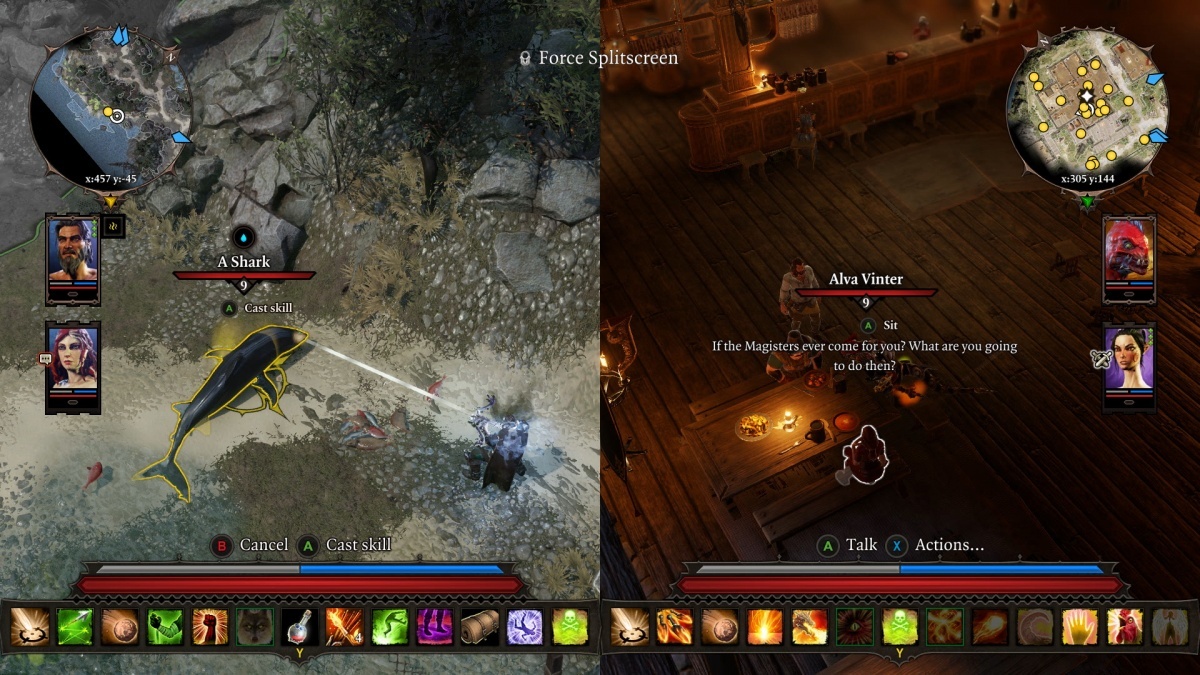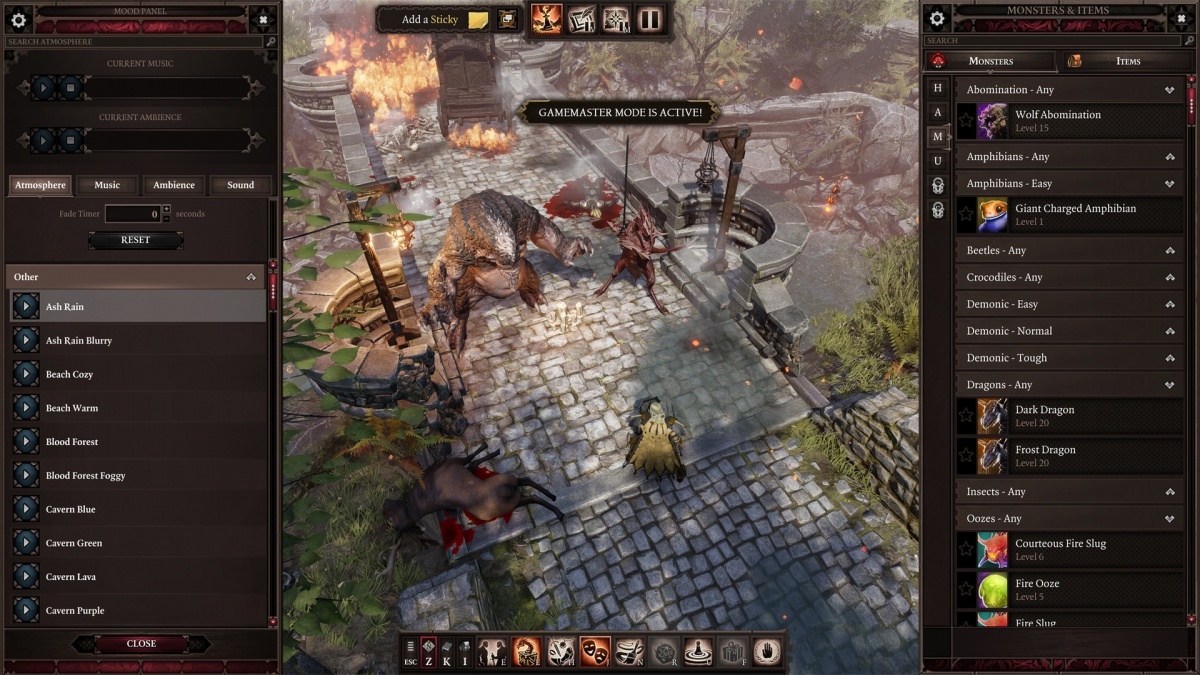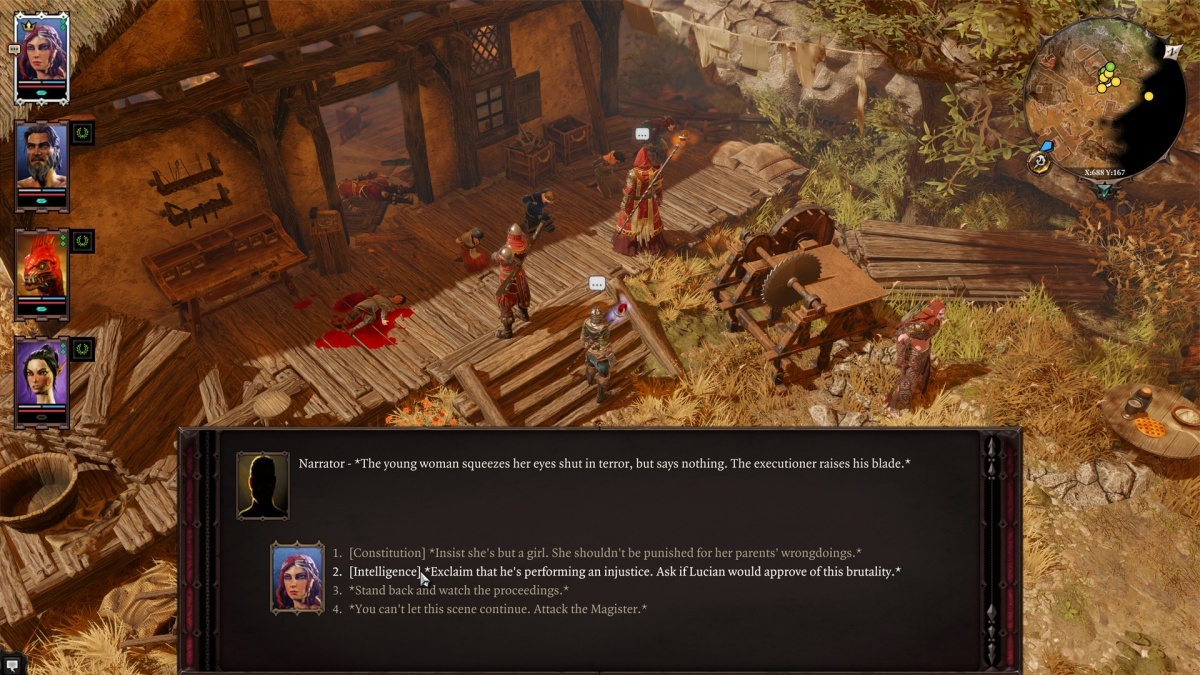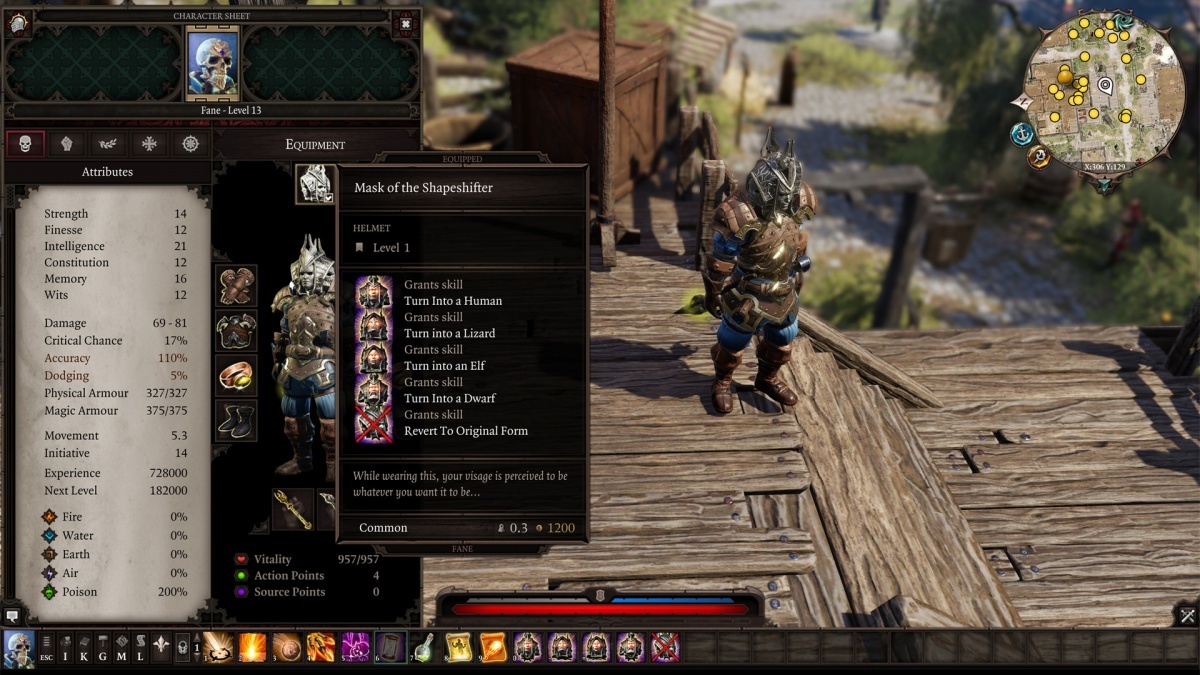Divinity: Original Sin II (PC) Review
By Chris Leebody  13.10.2017
13.10.2017

Very rarely does a PC role-playing game bring such excitement to the Internet; however, that is exactly what Divnity: Original Sin II has done. Fans will remember fondly the original title back in 2014, re-introducing a style of gameplay thought abandoned within the folklore of the PC RPG greats, such as Baldur's Gate and Neverwinter Nights - that is to say a focus on expert world-building and dialogue in addition to wide varieties of combat style. Larian Studios took a risk on pure turn-based combat, which paid off spectacularly in the strategic wonder, particular when combining it with the hallmark elemental environment options. Little wonder that shortly after release, the Kickstarter for Divinity: Original Sin II cropped up and rapidly stormed to fruition. Of course, it was no surprise this sequel already looked like a sure-fire hit and indeed Cubed3 got a sneak-peak at a small portion of the Early Access content. This introduced the beginning segment of the story and displayed great promise when it came to the core mechanics. Now, the full experience is finally here and the public can experience the world of Divinity - better sit down for this one.
From the very first second of Original Sin II, it is an uncompromising and almost overwhelming experience, which is the biggest lesson developer Larian delivers. Everything is a free choice and this can be both uplifting and also a burden. Thankfully, far more often than not this freedom is a spark of real joy. Take the first action; character creation. Already it improves over the original with a much more rigorous selection of options to choose from. Firstly, there is a choice to be made to play one of the pre-made (not in stats but story) characters. The incentive here is that they all come with their own written dialogue and lore-based side-quests.
It is a system that some will recognise from Dragon Age: Origins, but one that is more nuanced and organic. Not to mention the characters Larian has made feel more complex than the simple fantasy tropes that it would be easy to slip into. Take, for example, the undead being Fane who is literally a walking skeleton with a wisecracking attitude to match, or maybe the assassin-targeted Red Prince, a lizard who is the member of a royal family and whose character gets gradually fleshed out when speaking to other lizards throughout the world. There are many more on top, all ready to be recruited throughout the adventure within a party of four and all with evolving quest lines, which are great at teasing out their personalities and motivations.
In the previous title, there was a system that played a sort of rock-paper-scissors game when it came to character 'arguments'. Here, wisely, characters can disagree and they do have conversations about events and decisions made; however, it is much more organic and their reactions more realistic. Of course, the great thing is that the option is also totally option to create an entirely original character with their own look and voice. An opportunity is never missed, either, to indulge the fantasies of role-play aficionados; since even player-created characters can engage in conversations in a meaningful way and thanks to voice-acting, they really come alive and interact with the party members.

It's the small touches, as well, though, that are truly a sign of developer love and care, such as the ability to choose the primary instrument for the soundtrack. Picking the lute, for instance, will mean some of the more iconic moments of music are led by the same, or maybe the character build suits a more regal cello - this is an option, too.
As far as stats go for character building, they don't stray too far away from the typical attributes in the genre. It is easy to build a character in a particular style but without being forever ring-fenced into categories. Maybe have a ranger using a crossbow, for example, but put a few points into summoning and he doubles up as a capable magic user. Equally, how about a tank that can lure enemies to her but then devastate the area with area of effect spells by levelling up pyro - it is all available and flexible. The choice is really impressive and the bonus granted through levelling up makes it feel impactful and makes choosing the various attribute increases and abilities feel like a meaningful upgrade.
Creating a character is just one aspect, obviously; veterans of the Original Sin franchise will be all too familiar with the turn-based combat centred around the elemental mixing that was so key in combat previously. Thankfully, all the same structures are here and, honestly, there is not a lot that could really be changed to improve the situation. There is an upgrade in choice of spells and abilities, which obviously increases the strategic options at play. Most of the environmental elements remain the same and play a big role in victory.
In a lot of cases, it seems map design has been improved to further incorporate them and what is immediately noticeable is the improvement in computer AI, which now better utilises the most deadly strategies in laying waste to the player party. It is not uncommon for them to lure characters into areas before chaining together devastating firestorms in a chokepoint or sending electrical shockwaves after having cast a rain spell. Additionally, they are more adept at working together in terms of buffing each other or retreating when needed.

Combat encourages experimentation in the most outlandish ways and sometimes it feels like when an enemy is able to be teleported away from his allies and picked off alone, this is cheap or somehow breaking the game. That's the joy, though, Larian clearly wanted to see how clever its audience can be and it encourages this in all aspects. The best part is that enemies have no problem from also exploiting all the tricks in the book. There is nothing more annoying (but hilarious) when the boss turns one of the characters into a defenceless chicken; which incidentally is one of a few spells that Larian could do with adjusting slightly in terms of power in upcoming patches.
One thing that ties into the above, however, is the difficulty spike. Be warned, this is not for the fainthearted and the F5 key on the keyboard is likely to need replacing with the amount of times most people will be quick saving both inside and outside of combat. It isn't remarkable to have to save after each turn of a character in some of the most toughest fights with the difference between victory and defeat on a knife edge. This can be frustrating and tough to manage sometimes, especially since there are no random encounters in order to farm for experience and levelling up is a scarce experience. However, as frustrating as it may be, it always manages to encourage. Not good enough to win a fight? Go find another side-quest to do and gain some experience or a great piece of loot.
This is the central theme to much of Divinity: Original Sin II's success. It is an experience that thrives on a lack of hand holding. It asks the player to make choices in every aspect. Every NPC is killable (in theory), and any quest is solvable in a number of unique ways. Many developers want to railroad experiences to allow nothing to go wrong, to allow a 'fairground ride'. Original Sin II says "we don't care if you miss an important NPC dying; that is the journey your character is on" and this is a beautiful feeling for any role-playing fan. A slight niggle with this, though, and again it comes back to the lack of hand-holding, is that many quests (particularly the more obscure side-quests) are a little overwhelming when they start to pile up in the journal. There are no quest markers, so they all need to be solved using information gathered through many sources.

This means that responsibility is firmly on puzzle solving, exploring the towns, cities and forests for clues, and talking to as many NPCs as possible, who all usually have interesting things to say. Again, it can seem to just result in a mess of information and maybe Larian could do a little more to streamline the journal system to better, layout, and update when important information is discovered.
The story in Original Sin II is much improved over its predecessor, which tended to stay a little too much on the subtle and unremarkable. Here, the detective quests are over and the protagonists are very much involved in the very heart of the Divinity lore and magic, with a more refined and significant adventure. It introduces loads of factions that have well built motives and objectives, but never demand a binary loyalty system that many other titles fall into. The narrative hits 90mph much earlier and does not relent, involving imperial armies, politics, and the source magic so key to the lore. Best of all, every part of it is narrated with spoken dialogue and it is honestly some of the best acted dialogue in a fantasy title. Considering the amount of lines here, the fact that the quality never drops is a remarkable achievement.
Side-quests have also rapidly increased in number and are far more rewarding than previously, with many of the best events being the neat little back-alley conversations that turn into a murder-mystery adventure or a journey into a witch's den. They also do a great job of having unexpected consequences where they are least expected. Graphically, Original Sin II looks beautiful, with a really distinctive fantasy art style that gives great expression to the characters and world. The variety of the environments are again improved over the original, with lush forests, sparkling beaches, ruins and the rubble of a destroyed town or the bleak cavern of a spider's nest. One small gripe would be that with such detail, path-finding in some locations does become a slight issue and the camera could use a little work in being more flexible.

Cubed3 Rating
Masterpiece - Platinum Award

There is no such thing as a perfect game. It is a well-worn gaming cliché and it is true. People have different wishes and desires and tastes in many aspects of gaming. What Divinity: Original Sin II achieves, though, is that it marks itself out as the premier role-playing experience on PC. There are so many things to be praised that it is hard to review such an expansive title, but it achieves: an excellent and memorable story, a ridiculous number of options in combat, complete freedom in most aspects of gameplay including questing, an entirely and brilliantly voiced cast of characters, and an expertly composed score of music - all the while being cheaper than the average AAA PC title and looking gorgeous. This is an experience that needs to be discovered and savoured by any PC gamer, but especially any role-playing fan.

![]() 10/10
10/10
![]() 0
(0 Votes)
0
(0 Votes)
 Out now
Out now  Out now
Out now  None
None  Out now
Out now Comments
Comments are currently disabled

 Sign In
Sign In Game Details
Game Details Subscribe to this topic
Subscribe to this topic Features
Features





 Top
Top

